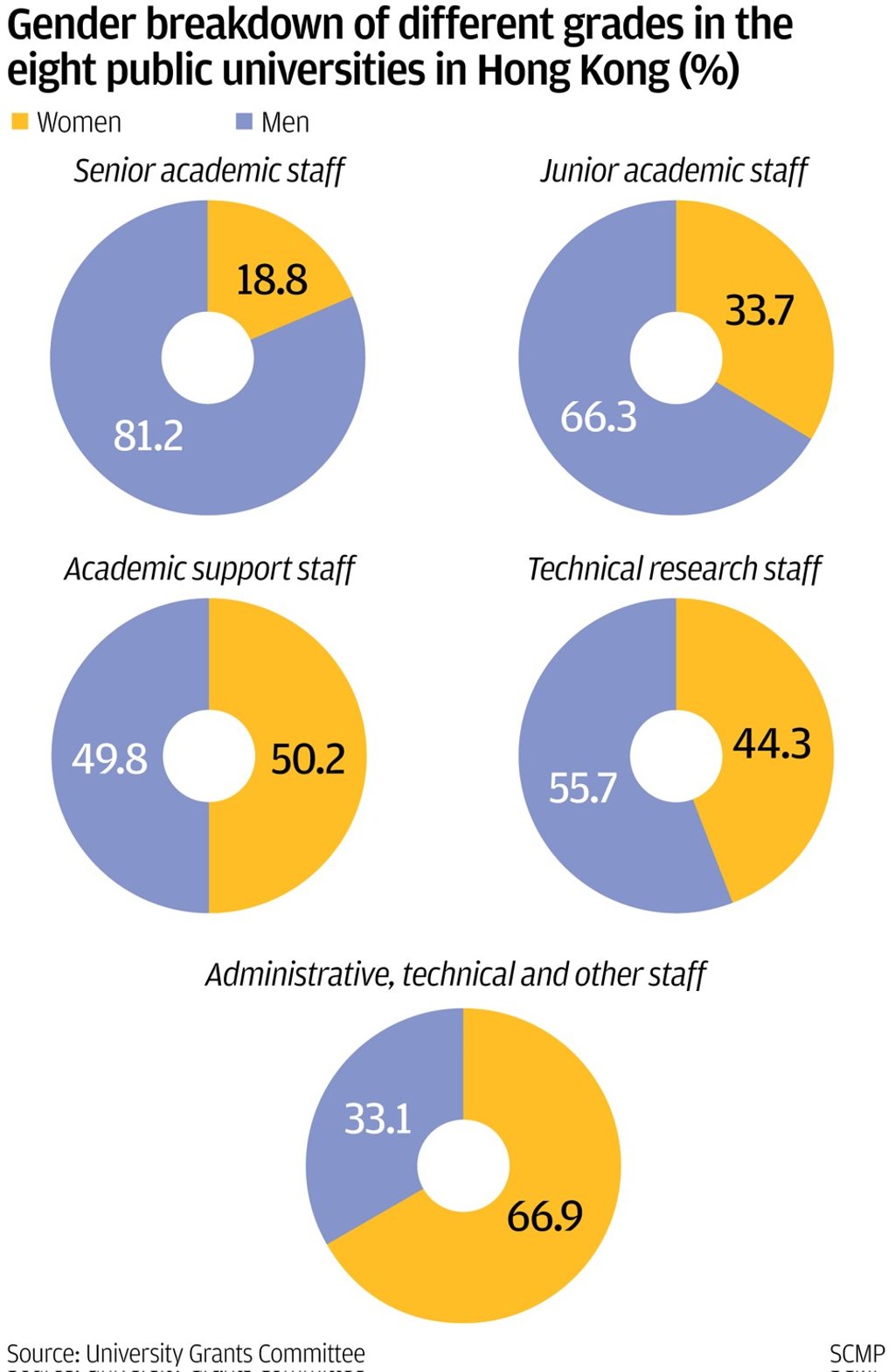Opinion | When will Hong Kong get its first woman university vice-chancellor?
Katherine Forestier says Hong Kong should be embarrassed by the findings of too few women in academic research and senior management. This can change with an effort to promote an interest in research and open the top jobs to capable women candidates

Hong Kong has no excuses. Unlike in many other regions, women can get on with their professional careers more readily, and do so in many fields, partly because of the generous help other women give them in raising their children, and the family support networks they can draw on.
And the pipeline is there. In international tests such as the Programme for International Student Assessment (Pisa), Hong Kong girls have on average outperformed boys in science and do almost equally well in maths, at aged 15. They then go on to win the bulk of undergraduate places, 53.9 per cent in 2017/18, as well as the UGC-funded master’s places, at 62.9 per cent.
Yet, after that, women give up that lead, holding back from taking up research postgraduate places – 41.9 per cent are women – and then junior academic posts, accounting for just 33.7 per cent. Moreover, very few of those female research students are from Hong Kong – just 527, or 18 per cent of the total number of women on publicly funded programmes in 2017/18.


